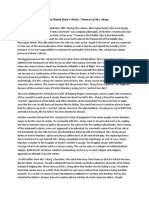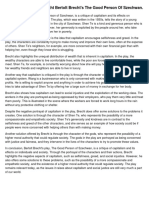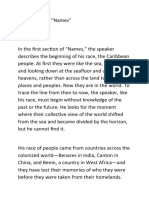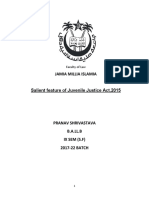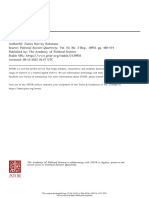100% found this document useful (1 vote)
3K views10 pagesWilfred Owen's "Spring Offensive" Analysis
The poem "Spring Offensive" by Wilfred Owen describes a battle that took place during World War I. It depicts soldiers resting on a hill before they are called to the front lines to face enemy fire. The poem uses vivid imagery and metaphors to convey the horrors of war, including the suffering and deaths of soldiers. It contrasts the natural beauty of the spring landscape with the imminent violence and destruction of battle. Through its irregular structure and shifting tones, the poem aims to realistically portray the experiences of soldiers during the Spring Offensive of 1918.
Uploaded by
ShontaiCopyright
© © All Rights Reserved
We take content rights seriously. If you suspect this is your content, claim it here.
Available Formats
Download as DOCX, PDF, TXT or read online on Scribd
100% found this document useful (1 vote)
3K views10 pagesWilfred Owen's "Spring Offensive" Analysis
The poem "Spring Offensive" by Wilfred Owen describes a battle that took place during World War I. It depicts soldiers resting on a hill before they are called to the front lines to face enemy fire. The poem uses vivid imagery and metaphors to convey the horrors of war, including the suffering and deaths of soldiers. It contrasts the natural beauty of the spring landscape with the imminent violence and destruction of battle. Through its irregular structure and shifting tones, the poem aims to realistically portray the experiences of soldiers during the Spring Offensive of 1918.
Uploaded by
ShontaiCopyright
© © All Rights Reserved
We take content rights seriously. If you suspect this is your content, claim it here.
Available Formats
Download as DOCX, PDF, TXT or read online on Scribd
/ 10

















